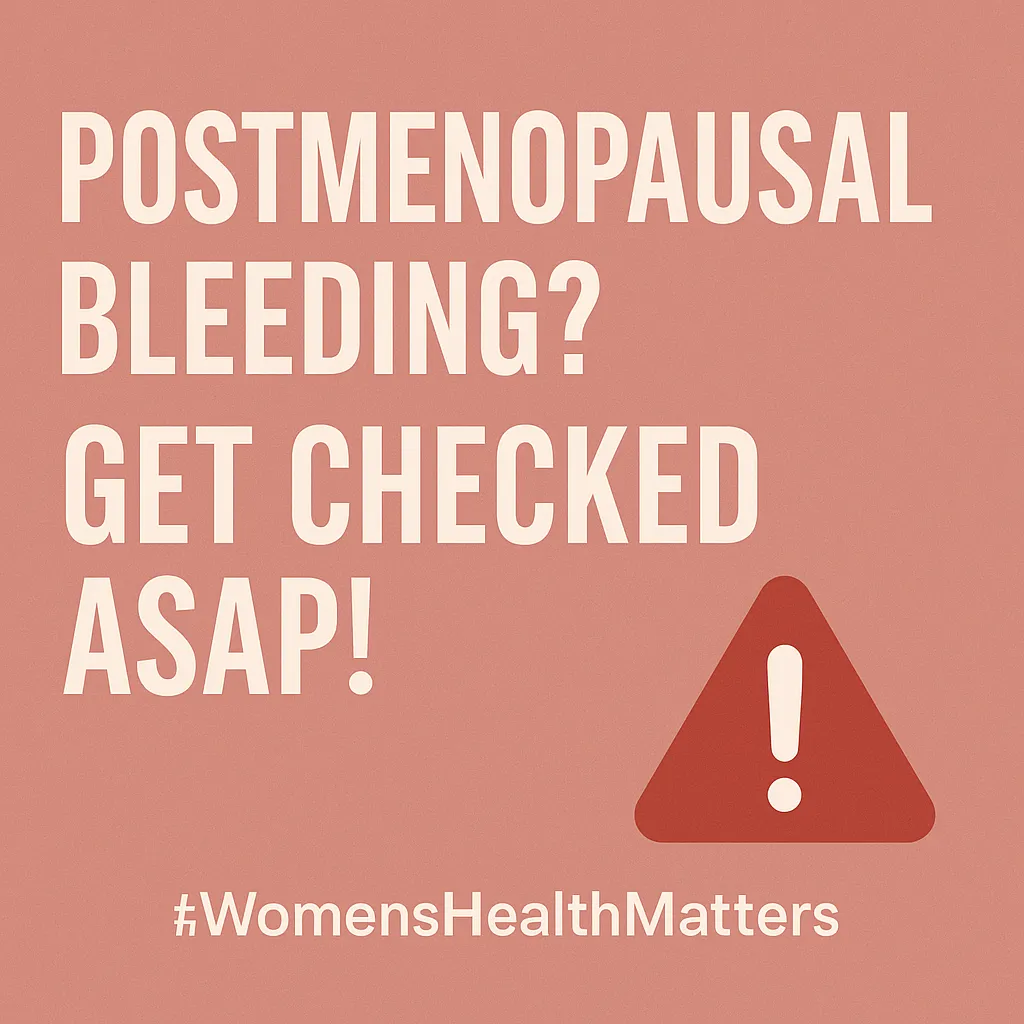
Seeing Is Believing: The Benefits of Ultrasound for Patients and Providers

Postmenopausal Bleeding? Get Checked ASAP!
Postmenopausal Bleeding? Get Checked ASAP!
Bleeding after menopause? It might seem like a small issue — maybe even something you can ignore for a while. But here’s the truth: postmenopausal bleeding is never normal. And if it happens to you or someone you love, the most important thing you can do is see a doctor immediately.

What is Postmenopausal Bleeding?
Postmenopausal bleeding refers to any vaginal bleeding that occurs after 12 consecutive months without a period — which marks the official end of menopause. Whether it’s light spotting or a full-on flow, it’s something that needs to be checked out.
What Could Be Causing It?
There are several possible causes, some harmless and some more serious. These include:
Vaginal or uterine atrophy (thinning of the vaginal walls or uterus lining due to low estrogen)
Endometrial polyps (non-cancerous growths)
Hormone replacement therapy side effects
Endometrial hyperplasia (thickening of the uterine lining)
Endometrial or uterine cancer
While not every case is cause for alarm, it's important to rule out the serious stuff first.

Why It Matters
Many women brush off symptoms because they seem minor or inconvenient. But early detection saves lives. If caught early, even the more serious causes — like uterine cancer — are often treatable with great outcomes.
What Should You Do?
📞 Call your doctor immediately.
🩺 You may be scheduled for a pelvic exam, transvaginal ultrasound, or biopsy to find out what’s going on.
Ignoring it won’t make it go away — but getting checked can give you peace of mind or catch something early when it’s most treatable.
Final Thoughts
Your health is worth advocating for. Speak up, ask questions, and don’t let anyone dismiss your concerns. Bleeding after menopause is a message from your body.
For those seeking expert ultrasound services, Atlanta Ultrasound offers quick, efficient, and comprehensive scans. Our team of skilled professionals is dedicated to providing you with the clarity and care you need.
Contact us today to schedule your ultrasound scan and take a decisive step towards understanding your health.
📍 Multiple locations in Metro Atlanta, GA
📞 Contact: 678-590-3300
🌐 Website: www.atlantaultrasound.com
Disclaimer: The content of this blog post, authored by a sonographer, is provided for educational and informational purposes only. It is not intended as medical advice, nor should it substitute for professional medical consultation, diagnosis, or treatment. Always seek the advice of your physician or other qualified health providers with any questions you may have regarding a medical condition or health concerns.
